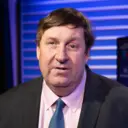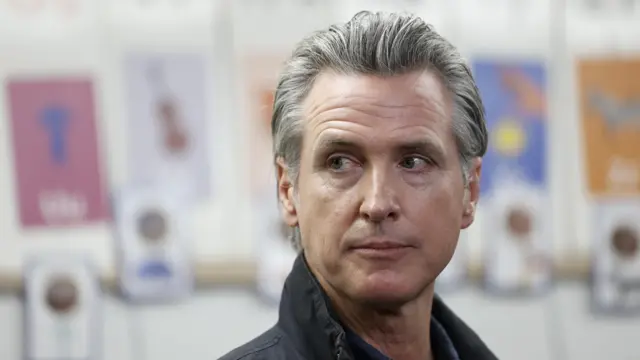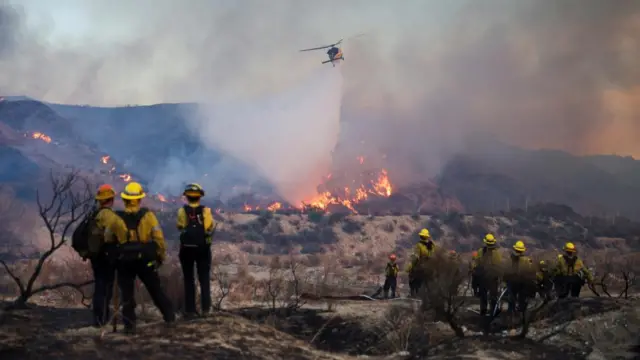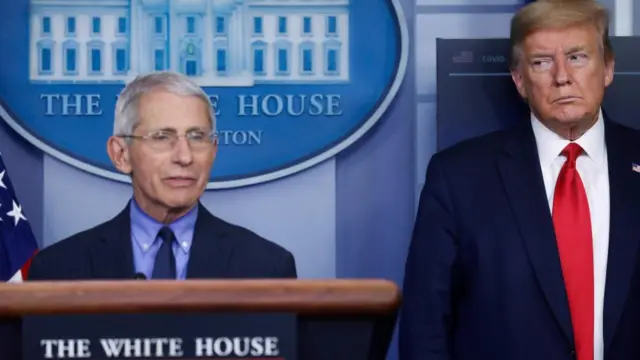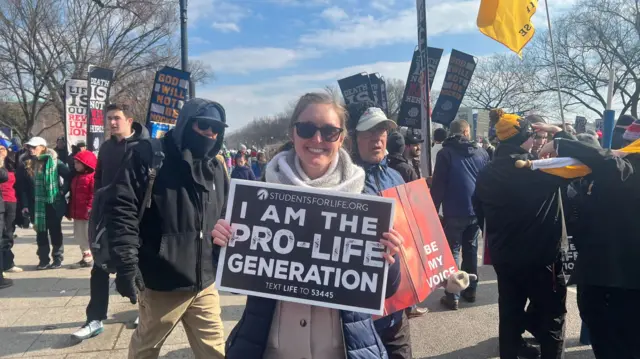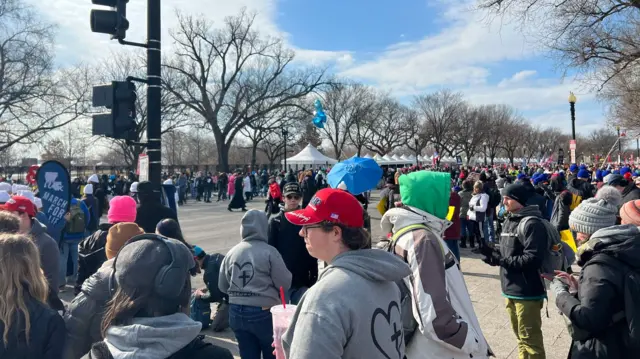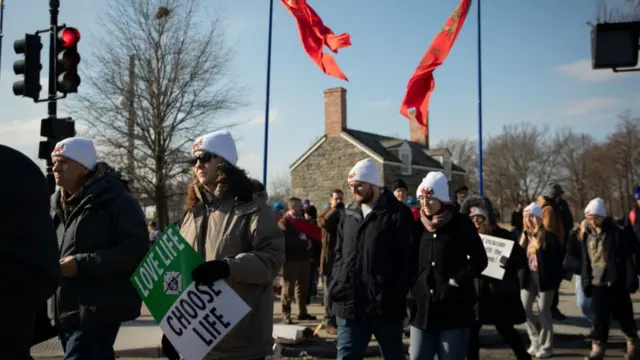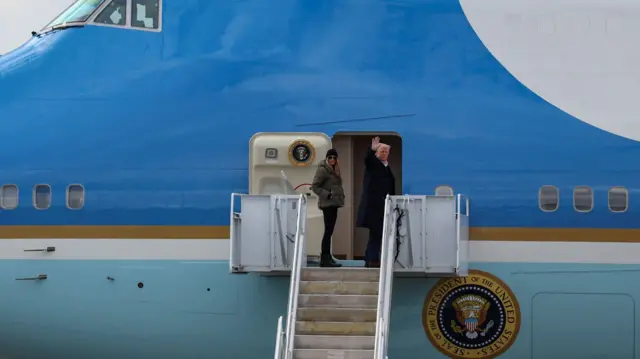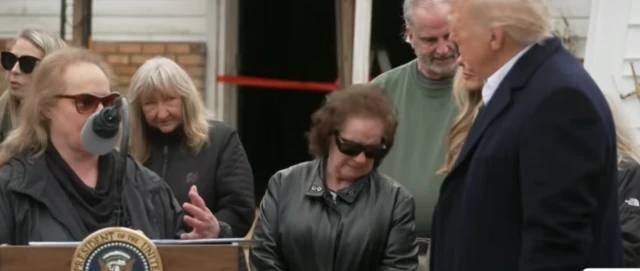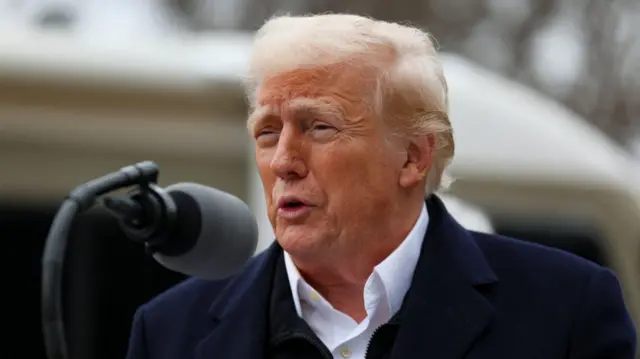Trump revives long-running fight with California over waterpublished at 22:05 GMT 24 January
Lisa Lambert
BBC News
When Trump lands in LA today, where he is expected to survey the damage of one of the area's two recent wildfires, he will undoubtedly bring up California's water.
He already has discussed it this morning, while visiting areas hit by Hurricane Helene, calling on California "to release the water".
Here's part of what he said: "They wouldn't have had a problem if they released the water when I told them to, because I told them to do it seven years ago."
Going back to his 2016 campaign and first term, Trump pushed California to move water from the state's north to the south. His chief rationale had nothing to do with fires, but with supporting the state's large agricultural producers.
In 2020, California sued to stop him from sending water from rivers and a major estuary known as the Delta to farms, saying he was hurting endangered species, primarily a small fish known as the Delta smelt. Fresh water is pumped from the state's northern mountains and their snow pack into the south through the Delta, where some of it mixes with sea water.
Since then, Trump has made the smelt a talking point in his campaigns and on Monday after being sworn in, he signed a memo called "Putting People Over Fish: Stopping Radical Environmentalism to Provide Water to Southern California.", external He has also repeatedly called for turning on the "faucet" in the north.
Now he is saying that turning on the "faucet" could have stopped or even prevented the historic fires.
That seems up for debate, but one thing is not: this is not the last fight California will see over water.

